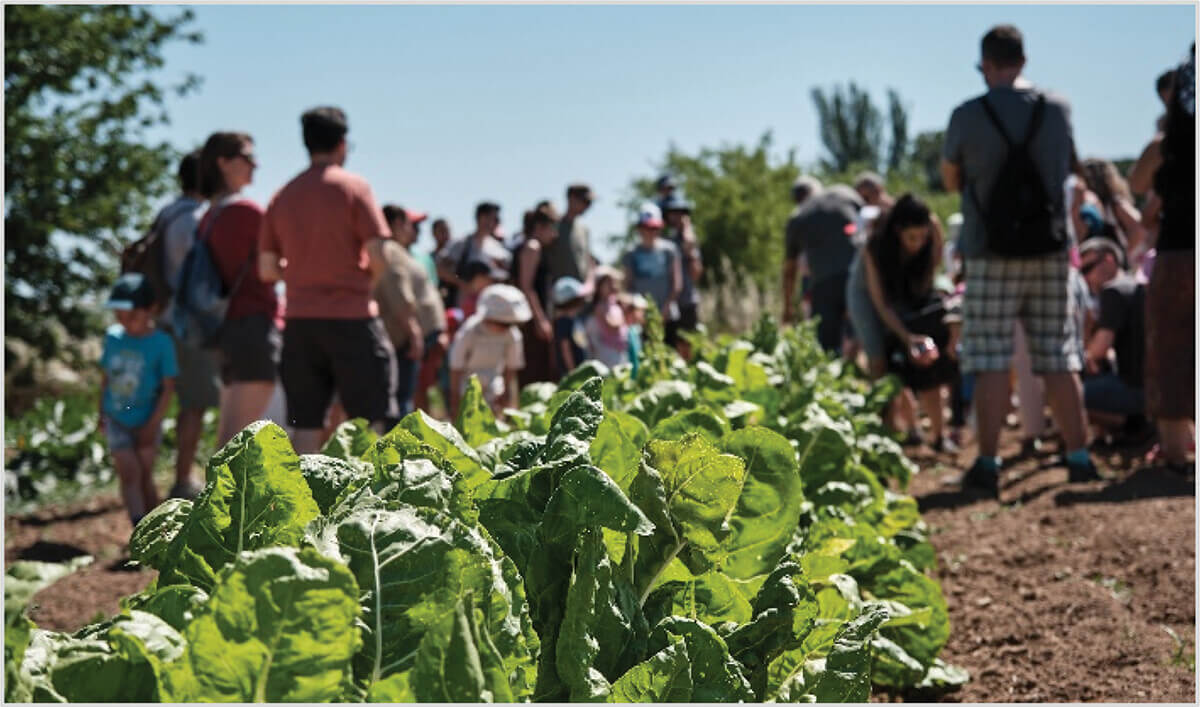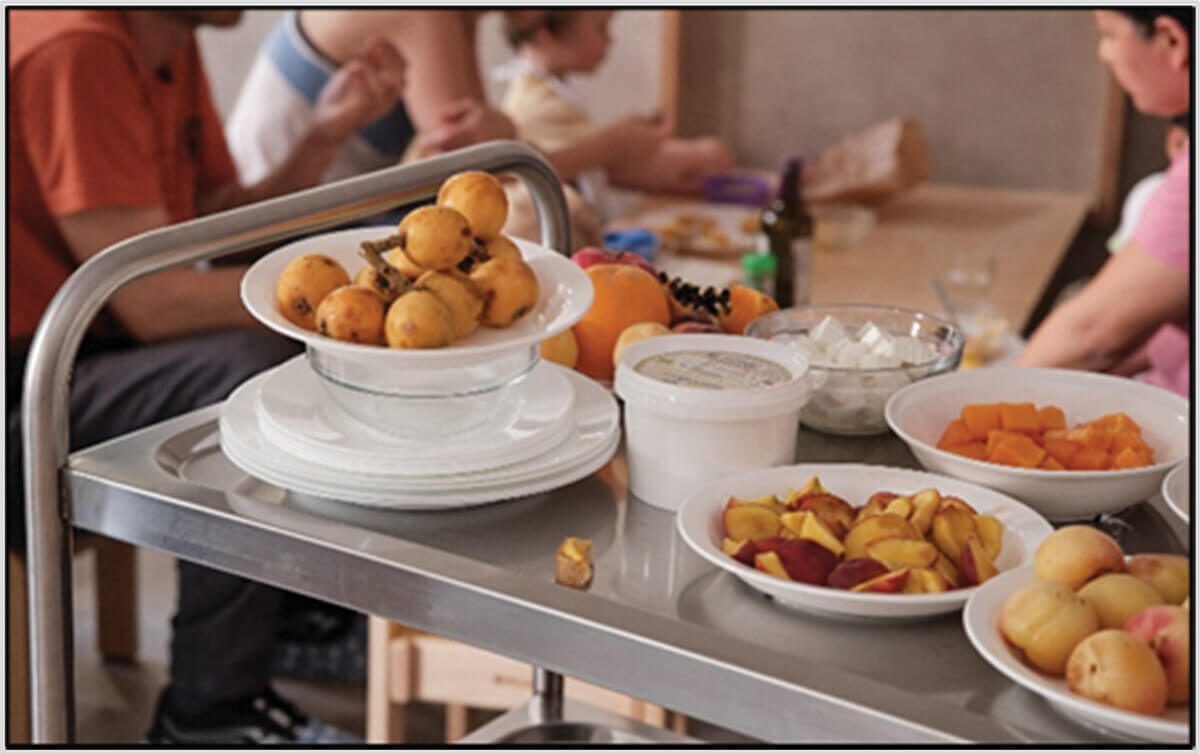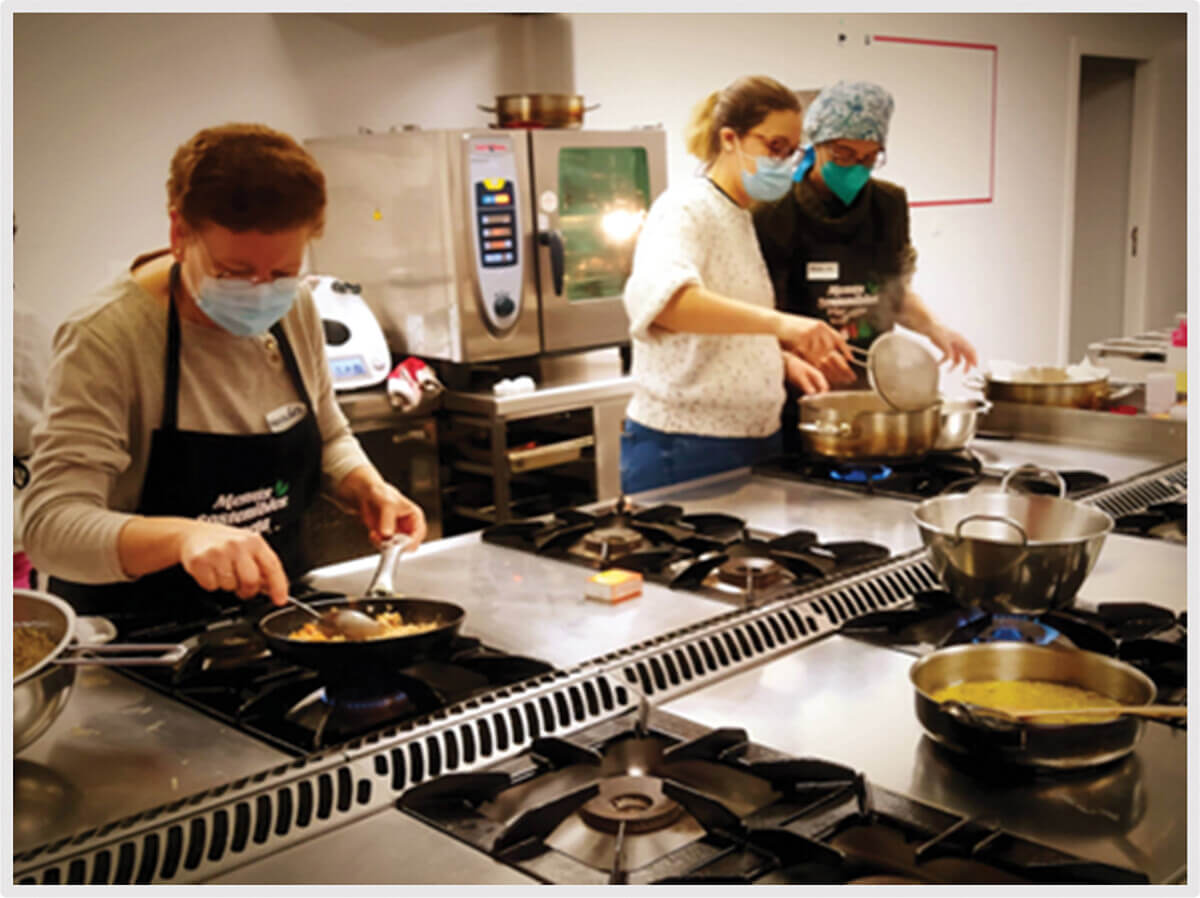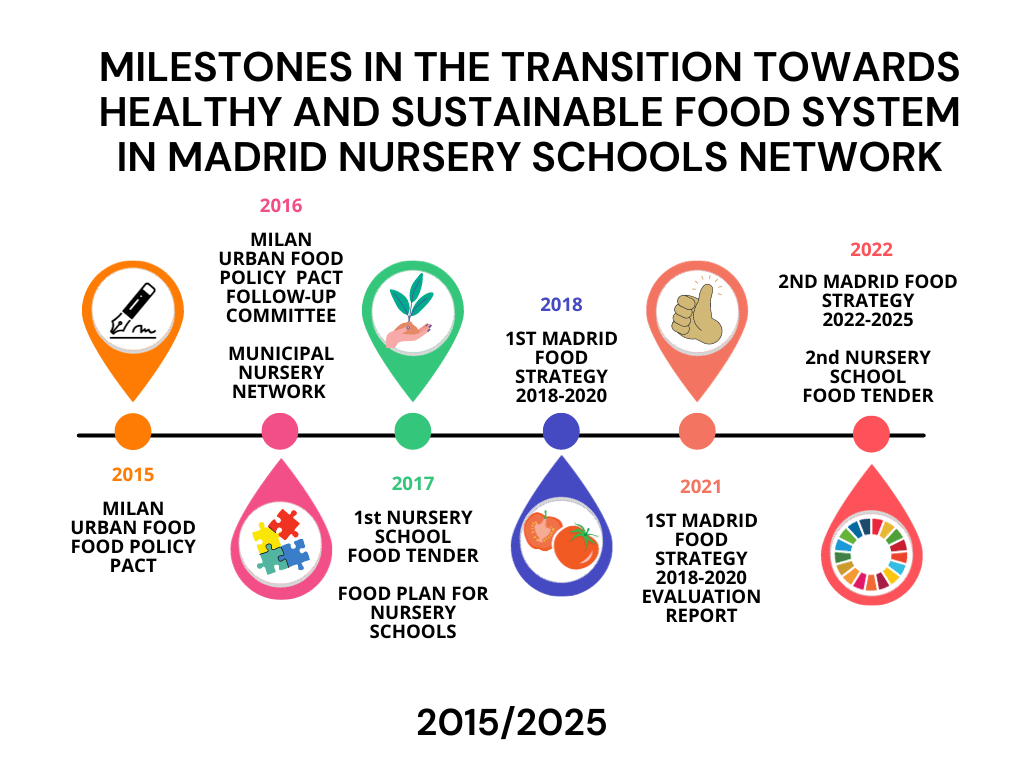case study of Madrid’s nursery school food system
We are happy to share news about the results of a scientific article conducted and published in October this year by the University of Alcalá titled “Fostering healthy and sustainable nursery school food systems: the case study of Madrid City”. It focuses on the implementation of a more healthy and sustainable nursery school food system in Madrid. Since 2022 Madrid has been a replication city in SchoolFood4Change.
What is the role of the city of Madrid in the project?
In the SchoolFood4Change project, we have been adopting replication cities to pilot actions, solutions, and approaches both in and outside of the EU. Recently, a case study was published by University of Alcalá, providing an in-depth illustration of how nursery schools actively foster healthier and more sustainable food systems for their children. Madrid is one of the current 20 replication cities within SchooFood4Change.
Urban food systems & strategies in Madrid
The case study article is the result of a collaboration between civil society organizations (Mensa Cívica), Madrid’s Department of Childhood Education and the academy. Developing city-based initiatives has great potential to improve eating habits and is of great importance in the SF4C project. However, the article discusses that a large gap lies within the knowledge transfer into food policies and interventions of urban cities.
The city of Madrid has a prevalence of overweight and obesity in children of more than 40%, where children of lower socioeconomic status show a higher prevalence risk of having these health issues. School feeding programmes have a vital role to play in preventing malnutrition of all types, and especially in strengthening the food system on a larger scale. Urban cities like Madrid have several challenges to work for accessible, healthy, and sustainable food for all children. The city’s first action towards this goal started in 2015 when it joined the Milan Urban Food Policy Pact. Nonetheless, it was not until 2018 that Madrid launched its first Food Strategy, in which mandatory criteria for local and organic and fair-trade foods as well the constitution of Steering Groups was included, with a great focus on their nursery schools. The joint Madrid Council nursery school network comprises 72 nursery schools that participated in the strategy, covering 8,500 children in the ages 0-3 years. Last year, Madrid published a new Healthy and Sustainable Food Strategy 2022-2025, working for a more holistic approach to their goals.
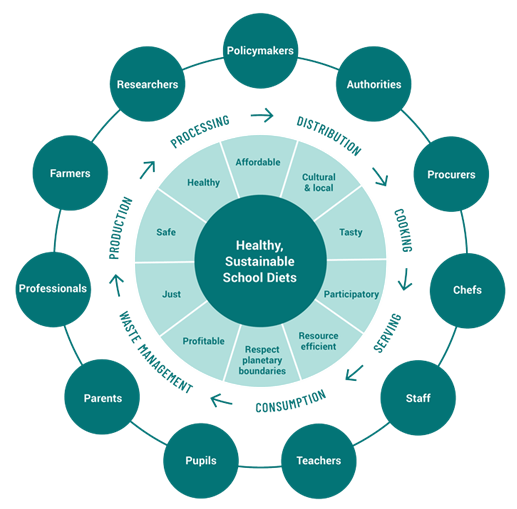
What were the findings of the case study?
The article discusses and pinpoints two main areas important for the successful enhancement of the school food environment within the nursery schools.
Firstly, the development and implementation of health and environmental standards in public food procurement practices is recognized as an important achievement. Secondly, the establishment of collaborative Food Steering Groups between key stakeholders, such as the Madrid’s Department of Childhood Education, civil society organizations, professional associations, and farmers’ representatives.
This experience of Madrid, in placing a focus for more sustainable food systems within nurseries, might be of interest for other cities that work towards similar goals. A main outcome related to SF4C is the successful implementation and improvements of public procurement criteria that provides space for future adoption within the SF4C project framework. The objective of these criteria is to ensure that seasonal, regional, and local food as well as a higher proportion of plant-based proteins is included in the school menu. Another goal is to prove the effectiveness of how by applying a holistic and multisectoral approach, healthy and sustainable food become the center of the school mission.
Replication City Activities in Madrid Nursery Schools
The concept of ‘Canteen Day’ is described as one of the main replication activities that will take place in 2024/2025. The Spain’s SchoolFood4Change national lead partner, Mensa Cívica (who coordinates the Spanish contributions to the project), will support the city in organizing at least four events in the structure of Canteen Day in several Spanish nursery schools. They will include the whole school community and they have the objective of promoting more healthy, sustainable and culturally adapted school menus.
The idea is that our replications cities should have the opportunity to learn from our implementing cities, which have already started experimenting and coming up with new solutions. With the experiences of Madrid in their transition to more sustainable school food systems in their nurseries, we look forward to their upcoming achievements with great enthusiasm.
For more information and to find the whole case study, it is available in Open Access in English, feel free to read directly through the following link: Full article: Fostering healthy and sustainable nursery school food systems: the case study of Madrid City (tandfonline.com)
